
Katharine Houghton Hepburn was an American actress whose career as a Hollywood leading lady spanned six decades. She was known for her headstrong independence, spirited personality, and outspokenness, cultivating a screen persona that matched this public image, and regularly playing strong-willed, sophisticated women. Her work was in a range of genres, from screwball comedy to literary drama, and earned her various accolades, including four Academy Awards for Best Actress—a record for any performer. In 1999, Hepburn was named the greatest female star of classic Hollywood cinema by the American Film Institute.

Love Affair is a 1939 American romance film, co-starring Charles Boyer and Irene Dunne, and featuring Maria Ouspenskaya. It was directed by Leo McCarey and written by Delmer Daves and Donald Ogden Stewart, based on a story by McCarey and Mildred Cram. Controversial on concept, the official screenplay was re-tooled and rewritten to appease Hollywood censorship and relied on actor input and improvisation, causing long delays and budget extensions.
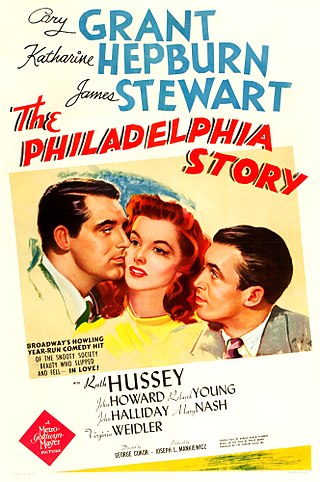
The Philadelphia Story is a 1940 American romantic comedy film starring Cary Grant, Katharine Hepburn, James Stewart, and Ruth Hussey. Directed by George Cukor, the film is based on the 1939 Broadway play of the same name by Philip Barry, about a socialite whose wedding plans are complicated by the simultaneous arrival of her ex-husband and a tabloid magazine journalist. The socialite, played by Hepburn in both productions, was inspired by Helen Hope Montgomery Scott (1904–1995), a Philadelphia heiress known for her hijinks, who married a friend of playwright Barry.

Henry Warren Beatty is an American actor and filmmaker. His career has spanned over six decades, and he has received numerous accolades, including an Academy Award and three Golden Globe Awards. He also received the Irving G. Thalberg Award in 1999, the BAFTA Fellowship in 2002, the Kennedy Center Honors in 2004, the Cecil B. DeMille Award in 2007, and the AFI Life Achievement Award in 2008.
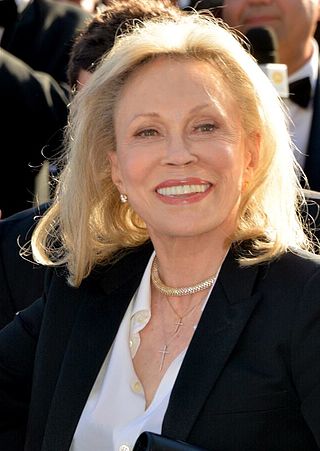
Dorothy Faye Dunaway is an American actress. She is the recipient of many accolades, including an Academy Award, a Primetime Emmy Award, three Golden Globe Awards, and a BAFTA Award. In 2011, the government of France made her an Officer of the Order of Arts and Letters.

Ishtar is a 1987 American adventure-comedy film written and directed by Elaine May and produced by Warren Beatty, who co-starred opposite Dustin Hoffman. The story revolves around a duo of talentless American songwriters who travel to a booking in Morocco and stumble into a four-party Cold War standoff.
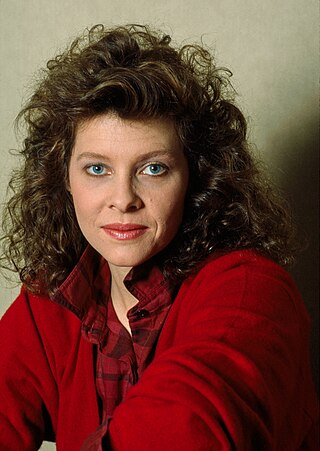
Kathleen Sue Spielberg, known professionally as Kate Capshaw, is a retired American actress and painter. She is best known for her portrayal of Willie Scott, an American nightclub singer and performer in Indiana Jones and the Temple of Doom (1984), directed by her eventual husband Steven Spielberg. Since then, she starred in Dreamscape (1984), Power (1986), SpaceCamp (1986), Black Rain (1989), Love Affair (1994), Just Cause (1995), and The Love Letter (1999). Her portraiture work has been shown in the Smithsonian National Portrait Gallery.

Of Human Bondage is a 1915 novel by W. Somerset Maugham. The novel is generally agreed to be Maugham's masterpiece and to be strongly autobiographical in nature, although he stated, "This is a novel, not an autobiography; though much in it is autobiographical, more is pure invention." Maugham, who had originally planned to call his novel Beauty from Ashes, finally settled on a title taken from a section of Spinoza's Ethics. The Modern Library ranked Of Human Bondage No. 66 on its list of the 100 best English-language novels of the 20th century.
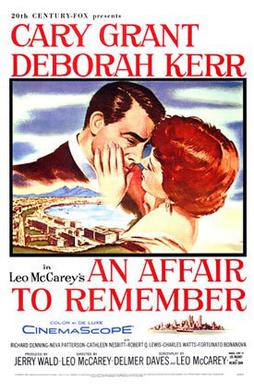
An Affair to Remember is a 1957 American romance film directed by Leo McCarey and starring Cary Grant and Deborah Kerr. Filmed in CinemaScope, it was distributed by 20th Century Fox. It is considered among the most romantic films of all time according to the American Film Institute. The film was a remake of McCarey's 1939 film Love Affair, starring Irene Dunne and Charles Boyer.

Sabrina is a 1954 American romantic comedy-drama film directed by Billy Wilder, from a screenplay he co-wrote with Samuel A. Taylor and Ernest Lehman, based on Taylor's 1953 play Sabrina Fair. The picture stars Humphrey Bogart, Audrey Hepburn, and William Holden. This was Wilder's last film released by Paramount Pictures, ending a 12-year business relationship between him and the company.
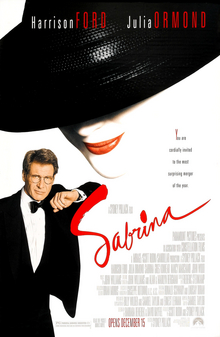
Sabrina is a 1995 American romantic comedy-drama film directed by Sydney Pollack from a screenplay by Barbara Benedek and David Rayfiel. It is a remake of Billy Wilder's 1954 film of the same name, which in turn was based upon the 1953 play Sabrina Fair.

How to Make an American Quilt is a 1995 American drama film based on the 1991 novel of the same name by Whitney Otto. Directed by Jocelyn Moorhouse, the film features Winona Ryder, Anne Bancroft, Ellen Burstyn, Kate Nelligan and Alfre Woodard. It also marked Jared Leto's film debut. Amblin Entertainment optioned Otto's novel in 1991, and were able to persuade Steven Spielberg to finance the screenplay's development. How to Make an American Quilt garnered mixed reviews from critics. It was a box-office success, grossing $41 million against a $10 million budget. The film received a nomination for the Screen Actors Guild Award for Outstanding Performance by a Cast in a Motion Picture.

Little Women is a 1949 American comedy-drama film with script and music taken directly from the earlier 1933 Hepburn version. Based on Louisa May Alcott's 1868–69 two-volume novel of the same name, it was filmed in Technicolor and was produced and directed by Mervyn LeRoy. The screenplay was written by Sally Benson, Victor Heerman, Sarah Y. Mason, and Andrew Solt. The original music score was composed by Adolph Deutsch and Max Steiner. The film also marked the American film debut of Italian actor Rossano Brazzi. Sir C. Aubrey Smith, whose acting career had spanned four decades, died in 1948; Little Women was his final film.

The Thomas Crown Affair is a 1968 American heist film directed and produced by Norman Jewison and starring Steve McQueen and Faye Dunaway. It was nominated for two Academy Awards, winning Best Original Song for Michel Legrand's "The Windmills of Your Mind". A remake was released in 1999.

The Thomas Crown Affair is a 1999 American romantic heist film directed by John McTiernan, written by Leslie Dixon and Kurt Wimmer and is a remake of the 1968 film of the same name. Its story follows Thomas Crown, a billionaire who steals a painting from an art gallery and is pursued by an insurance investigator with the two falling in love. It stars Pierce Brosnan, Rene Russo, and Denis Leary.

Town & Country is a 2001 American romantic comedy film directed by Peter Chelsom, written by Buck Henry and Michael Laughlin, and starring Warren Beatty, Diane Keaton, Goldie Hawn, Garry Shandling, Andie MacDowell, Jenna Elfman, Nastassja Kinski, Charlton Heston, and Josh Hartnett. Beatty plays an architect, with Keaton as his wife, and Hawn and Shandling as their best friends. It was Beatty's and Keaton's first film together since 1981's Reds, and Beatty's third film with Hawn, after 1971's $ and 1975's Shampoo.

Mixed Nuts is a 1994 Christmas dark comedy film directed by Nora Ephron, based on the 1982 French comedy film Le Père Noël est une ordure. Co-written by Ephron and her sister Delia, the film features an ensemble cast which includes Steve Martin, Madeline Kahn, Rita Wilson, Anthony LaPaglia, Garry Shandling, Rob Reiner, Juliette Lewis, Adam Sandler, and Liev Schreiber in his film debut.
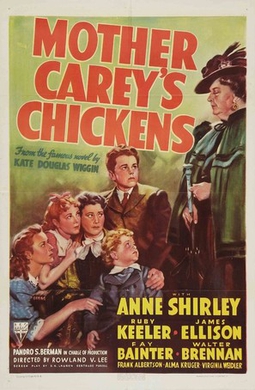
Mother Carey's Chickens is a 1938 American drama film starring Anne Shirley and Ruby Keeler. The film was directed by Rowland V. Lee and based upon a 1917 play by Kate Douglas Wiggin and Rachel Crothers, which in turn was adapted from Wiggins' Mother Carey's Chickens.

Travels with My Aunt is a 1972 American comedy film directed by George Cukor, written by Jay Presson Allen and Hugh Wheeler, and starring Maggie Smith. The film is loosely based on the 1969 novel of the same name by Graham Greene. The film's plot retains the book's central theme of the adventurous, amoral aunt and her respectable middle class nephew drawn in to share her life, and also features her various past and present lovers who were introduced in the book, while providing this cast of characters with different adventures to the ones thought up by Greene, in different locales. It was released on December 17, 1972.

The 29th Golden Raspberry Awards, or Razzies, ceremony was held by the Golden Raspberry Award Foundation to identify the worst films the film industry had to offer in 2008, according to votes from members of the Golden Raspberry Foundation. Razzies co-founder John J. B. Wilson has stated that the intent of the awards is "to be funny." The ceremony was held at the Barnsdall Gallery Theatre in Hollywood, California on February 21, 2009. Nominations were announced on January 21, 2009. The Love Guru was the most nominated film of 2008, with seven. Award results were based on votes from approximately 650 journalists, cinema fans and film professionals from 20 countries. Awards were presented by John Wilson, the ceremony's founder. The Love Guru received the most awards, winning Worst Picture, Worst Actor, and Worst Screenplay. Paris Hilton received three awards, including Worst Actress for her work in The Hottie & the Nottie and Worst Supporting Actress for Repo! The Genetic Opera. Hilton matched the record number of awards received by an actor in a single year, set by Eddie Murphy the previous year at the 28th Golden Raspberry Awards for his roles in Norbit.




















